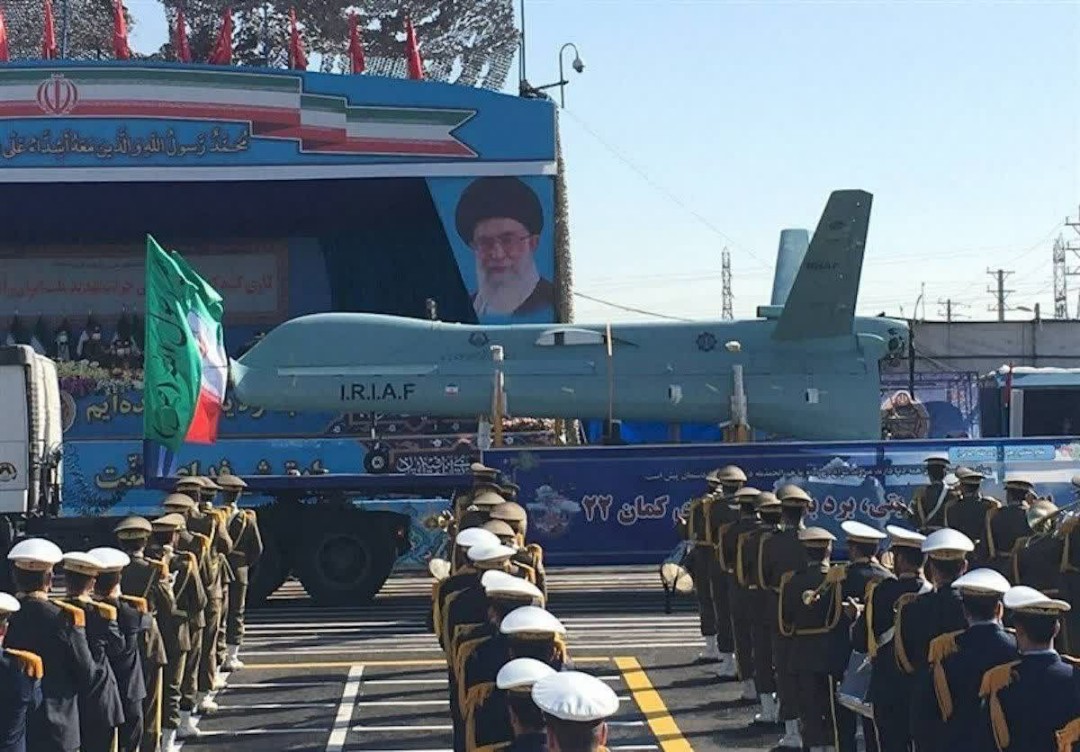Iran has recently sent out signals showing the possibility of new escalations that might occur in the region. The current developments cannot be separated from factors that are both local to the region and foreign, this includes the decline in internal protests in Iran that began in mid-September and the resumption of security operations inside Iran. Further to this is the escalation of tensions with the US and Israel over many controversial issues.
Several Iranian reports revealed, at the beginning of February, new information regarding the attack on a facility belonging to the Iranian Ministry of Defense in Isfahan, on January 27. It seems that the Iranian regime sought to pass on this information in anticipation of steps it might take during the coming period. Those reports indicated that some of the components of the drones used in the attack were smuggled inby Iranian Kurdish groups in northern Iraq, with instructions from a foreign security apparatus.
It was also remarkable that on the occasion of the anniversary of the “historic pledge of allegiance of the pilots to Khomeini” on February 8, 1979, the Iranian army announced, on February 7, a new air base that includes planes and drones, and Chief of Staff Muhammad Bagheri indicated that the Iranian forces are more than ready to confront any attack on Iran.
Motives Behind the Escalation
There are several reasons why Iran is moving to escalate through these signals, these are represented in the following:
1- Continued accusations against the armed opposition of supporting the protests: The publication of reports on Iranian opposition groups smuggling weapons into Iran is tied in with previous accusations leveled by the Iranian authorities against the opposition. They have accused them of being involved in operations to support protestsin Iran that started in mid-September and began in the Kurdish areas. Iran accuses them of smuggling weapons into the country and these groups have used these weapons against the security forces.
The authorities have relied on these accusations to launch military strikes in northern Iraq, last November. It seems that it may renew these strikes in the coming period, in light of the regime’s intent to continue touting theseallegations as being the real reasons that led to the outbreak of the protests and their continuation despite all the measures taken to deal with them.
2- Iran Claims that there is an Israeli presence in northern Iraq: Iran continues to insist that Israel has a military and security presence in northern Iraq that it uses to threaten Iran and to continue its military operations inside Iran. These operations have targeted nuclear and military installations and even nuclear scientists and military leaders.
The justification on which Iran launched military strikes in northern Iraq, on March 13, during was that it targeted the headquarters of the Israeli “Mossad”. Iran gave this justification to help stymie the protests that were going on, which is based on the fact that this reflects an external plan to undermine the foundations of the ruling regime and spread chaos in Iran.
3- The potential for a new conflict: Iran no longer rules out a war occurring in the region, this is primarily to the outstanding differences with both the US and Israel, since they have increased dramatically of late. The main problem no longer lies in the Iranian nuclear program, which Iran is continuing to make breakthroughs in regarding accumulating quantities of enriched uranium at 20% and 60% enabling Iran to possess the technical ability to produce several nuclear bombs according to the Director General of the IAEA Rafael Grossi. This issues with Iran extend to the involvement of militias affiliated with Iran in southern Syria and near the borders of Israel, and the continuous attempts to transfer military equipment to Syria through the borders with Iraq. Finally, the military support that Iran provides to Russia to help it including the management of military operations in Ukraine and the supplying of drones.
4- Showing a Strong Iran Despite Internal Pressures: The Iranian regime is seeking through these signals to confirm that its foreign policy has not been affected by the outbreak of internal protests since mid-September. This represents a response to statements made by US officials indicating that these protests may be affected by this policy.
On February 3, US Director of Intelligence William Burns said, “The internal instability in Iran, driven by widespread protests, has increasingly confused the regime in Tehran,” adding that “the Iranian government has become unstable, due to the protests taking place inside the country.”
It was remarkable that the US has sent signals that it was already expecting that the protests would impose significant changes inside Iran, especially at the political level, which prompted it, to “delay” the decision on the fate of the nuclear agreement. Negotiations between Iran and international powers have stalled since last September.
Hence, Iran is trying to affirm that it will not back down from the current policy it adopts in dealing with major issues, especially with regard to nuclear negotiations or with regards to other contentious issues such as the missile program, regional interference, and Iran’scontinued military support for Russia in the Ukrainian War.
Continued Duplicity
Despite this, Iran has not ruled out reaching agreements with its opponents, especially the US. The strong pressures it is exposed to on the internal and external fronts limit the options that it has. However, Iran is still keen to send reassuringsignals to try and reach a settlement.
It is remarkable that Iran is still counting on the possibility of reaching a nuclear deal and renewing the negotiations that have stalled with international powers, after Iran rejected the draft agreement presented by EU Foreign Policy Chief JosepBorrell last August. Iran has also denied reports that revealed the possibility of establishing an Iranian-Russian factory for the production of drones in Russia. The “Noor News” agency of the Supreme National Security Council indicated on February 7, that “Iran does not have any independent or joint project to produce drones in Russia”. This suggests that Iran will continue to adopt a dual policy in dealing with the main contentious issue during the coming period.


